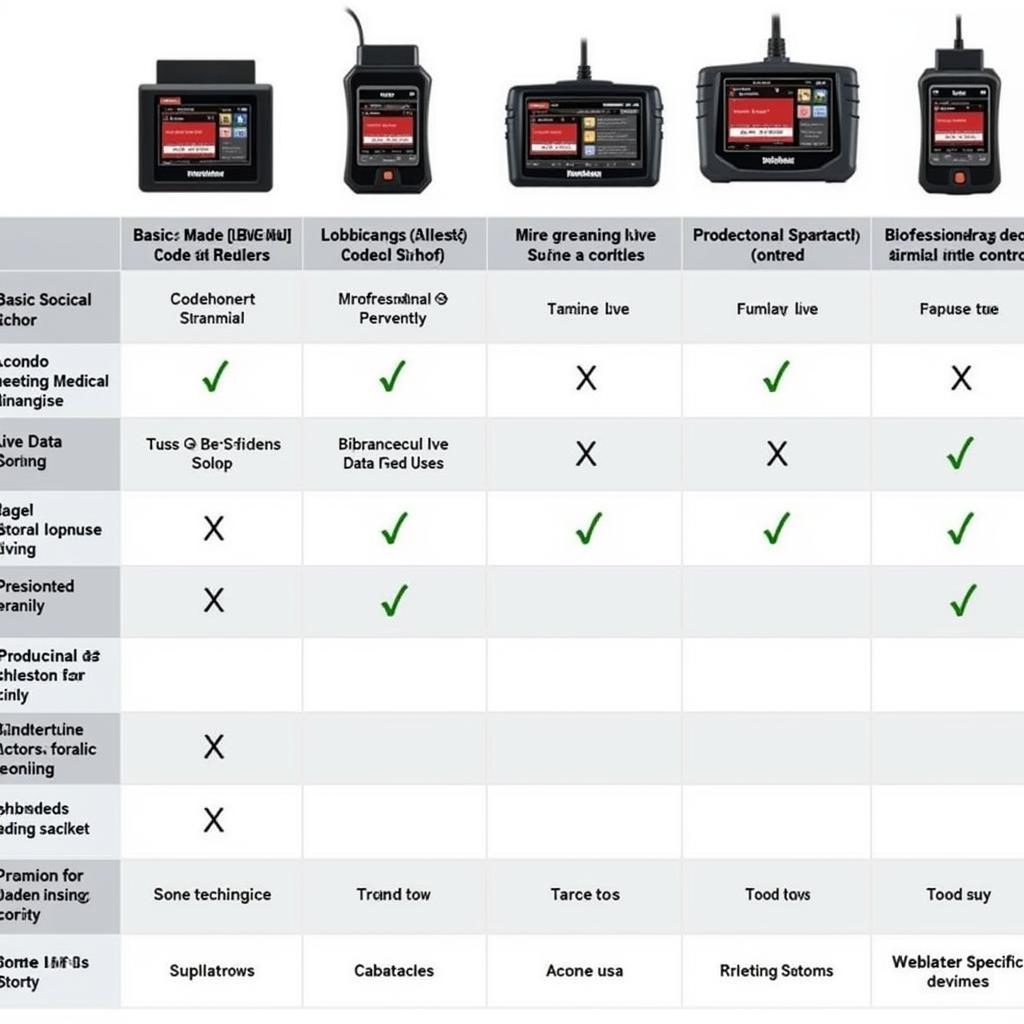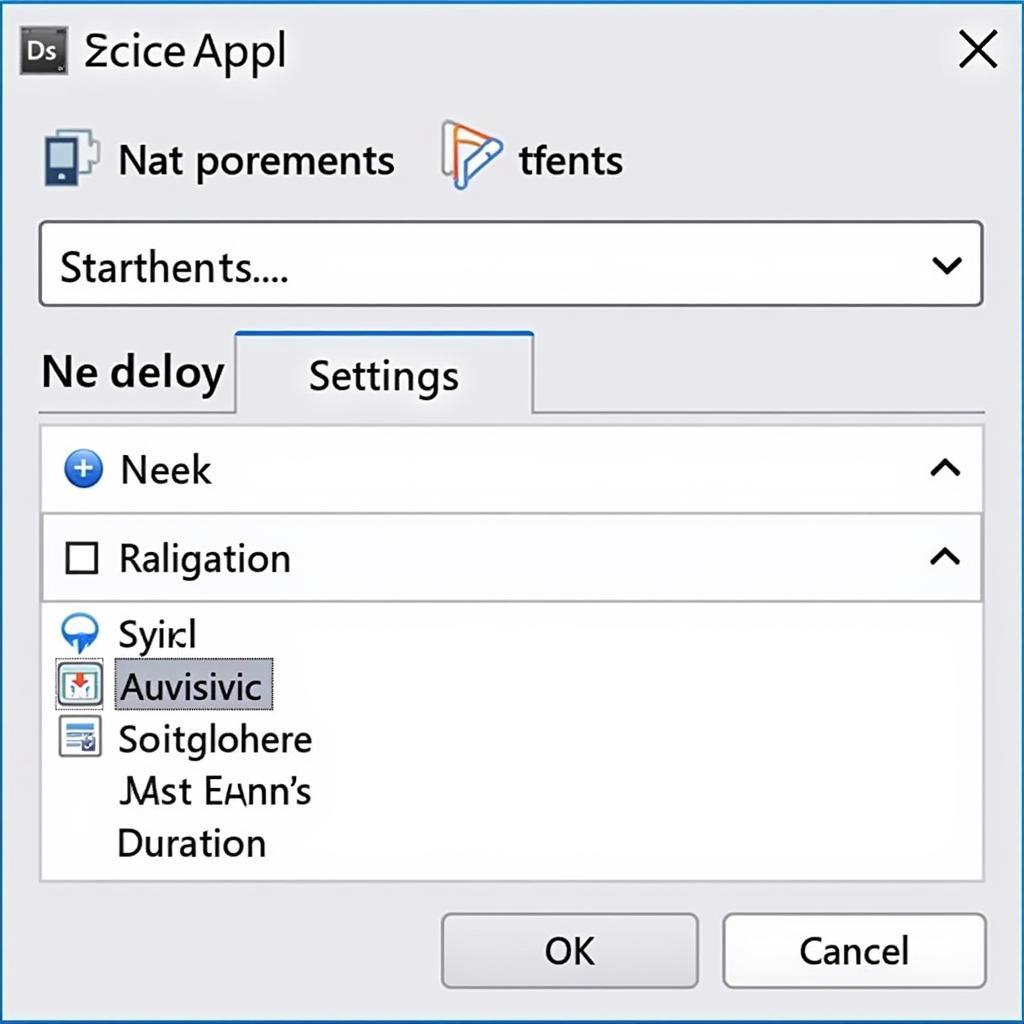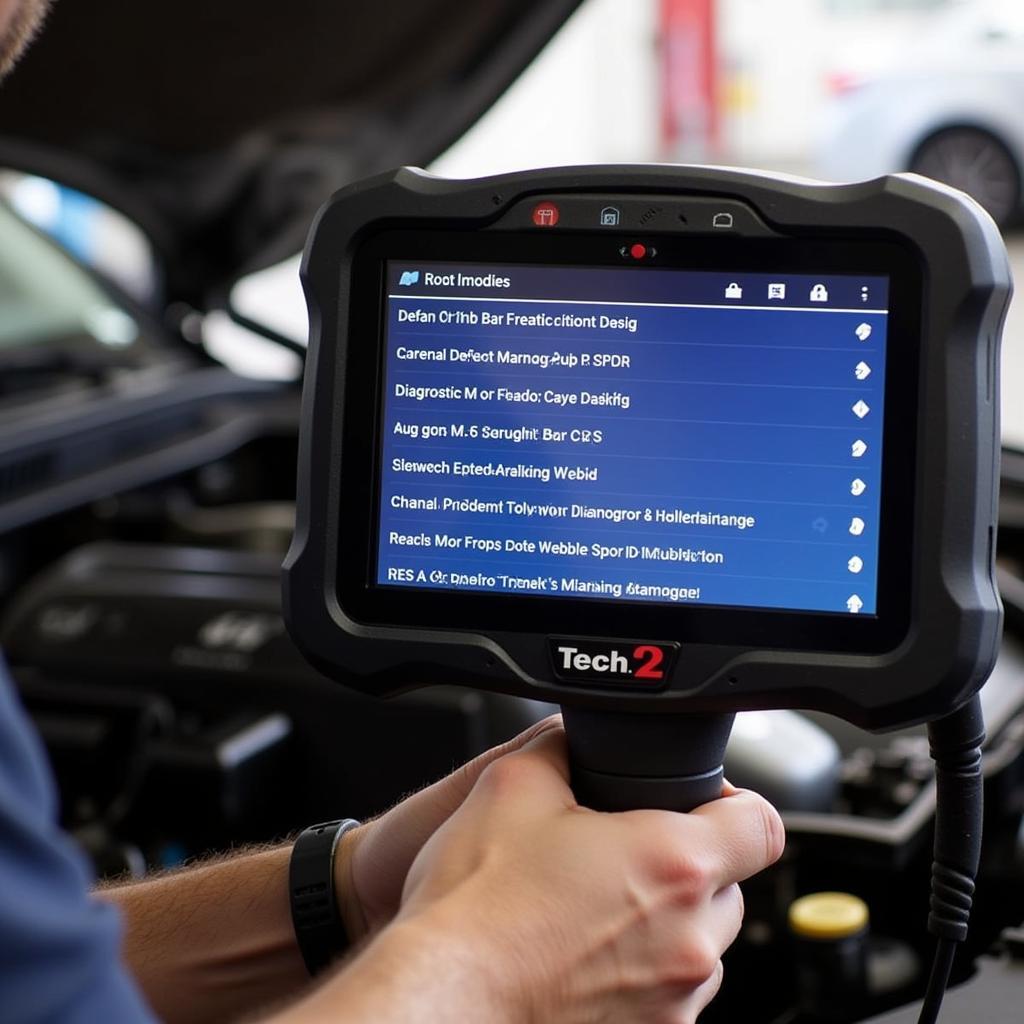Troubleshooting a faulty car amplifier can be a frustrating experience. Whether you’re a car owner, a mechanic, or an automotive technician, having the right Car Amp Diagnostics Tools and knowledge can save you valuable time and money. This guide will equip you with the essential information you need to effectively diagnose and resolve car amplifier issues.
After identifying the issue, the next step involves using specialized car amp diagnostics tools. These tools, ranging from simple multimeters to advanced diagnostic scanners, allow you to pinpoint the problem accurately. If your issues lie with other systems, you might find our bosch ecu diagnostic tool guide helpful.
Understanding the Importance of Car Amp Diagnostics Tools
A car amplifier is the heart of your car audio system, responsible for boosting the audio signal from your head unit to your speakers. When your amplifier malfunctions, it can lead to a range of problems, from distorted sound to complete silence. Car amp diagnostics tools enable you to identify the root cause of these problems, whether it’s a blown fuse, a faulty wiring connection, or a damaged amplifier component.
A common mistake is assuming the amplifier itself is the problem without proper diagnostics. Using car amp diagnostics tools can save you from unnecessarily replacing a perfectly good amplifier. Instead, you may find the issue is a simple wiring problem. For complex engine diagnostics, check our automotive engine diagnostic tools resource.
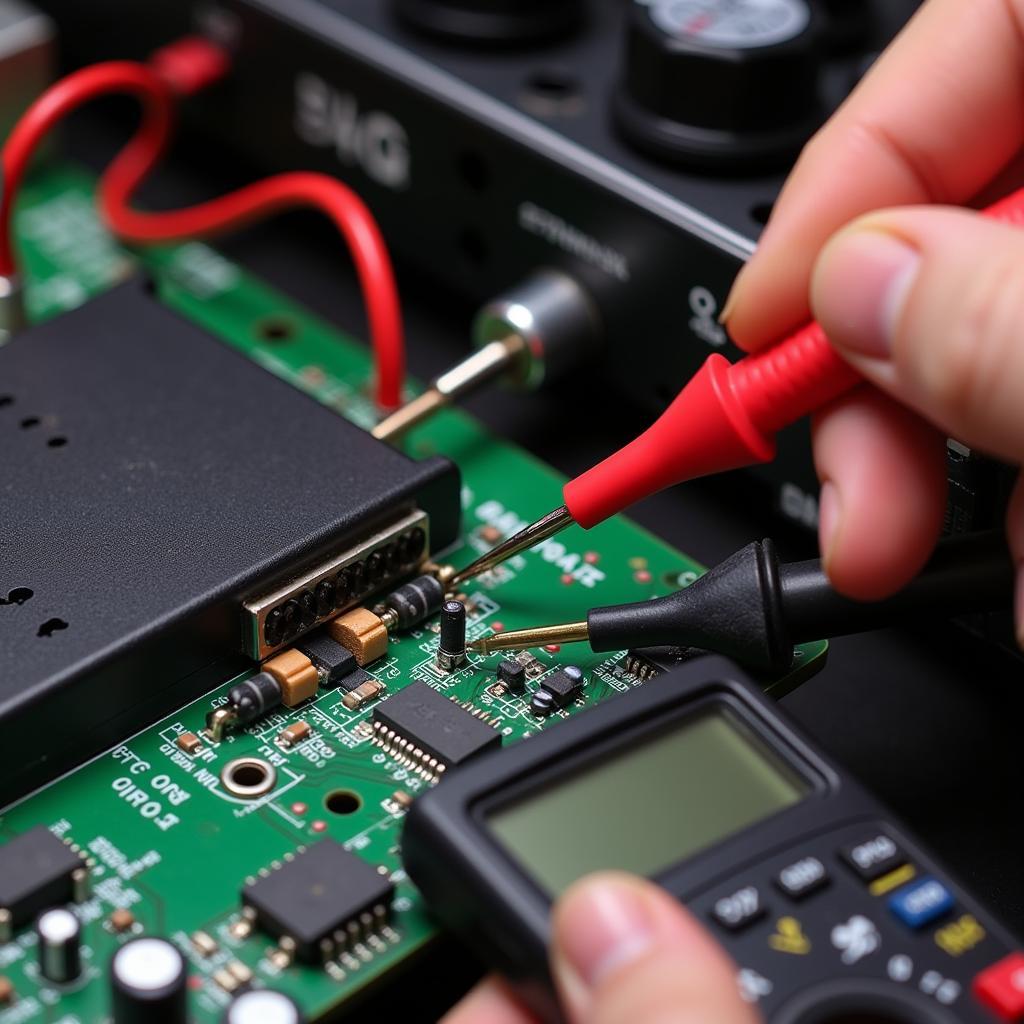 Using a Multimeter to Test Car Amplifier Circuits
Using a Multimeter to Test Car Amplifier Circuits
Common Car Amplifier Problems and Diagnostic Procedures
Several issues can plague a car amplifier. Here’s a breakdown of some common problems and how car amp diagnostics tools can help you identify them:
- No Sound: This could be caused by a blown fuse, a loose wiring connection, a faulty head unit, or a damaged amplifier. Using a multimeter, you can check the power supply to the amplifier and the continuity of the wiring.
- Distorted Sound: This is often a sign of a faulty amplifier component, a poor ground connection, or a problem with the speaker wiring. An oscilloscope can help you visualize the audio signal and identify distortions.
- Amplifier Overheating: This can be caused by excessive gain, low impedance speakers, or a faulty amplifier. A thermal imaging camera can identify hot spots on the amplifier and pinpoint the source of the overheating.
- Amplifier Turns On and Off Intermittently: This could be a sign of a loose wiring connection, a faulty power supply, or a problem with the amplifier’s internal circuitry. A diagnostic scanner can help identify intermittent faults.
Choosing the Right Car Amp Diagnostics Tools
The specific car amp diagnostics tools you need will depend on the complexity of the problem you’re trying to diagnose. Here’s a look at some essential tools:
- Multimeter: A multimeter is a versatile tool that can measure voltage, current, and resistance. It’s essential for checking the power supply, ground connections, and continuity of wiring.
- Oscilloscope: An oscilloscope allows you to visualize the audio signal and identify distortions. This tool is essential for diagnosing problems with the amplifier’s output signal.
- Diagnostic Scanner: A diagnostic scanner can communicate with the vehicle’s computer and retrieve diagnostic trouble codes (DTCs). This can help you identify problems with the amplifier’s communication with other systems in the vehicle. If your diagnostics involve the braking system, our mercedes brake repair diagnostics tool article could provide useful information.
“A good multimeter is the foundation of any car audio diagnostic toolkit,” says automotive electrical expert, Robert Miller. “It’s your first line of defense for identifying basic electrical issues.”
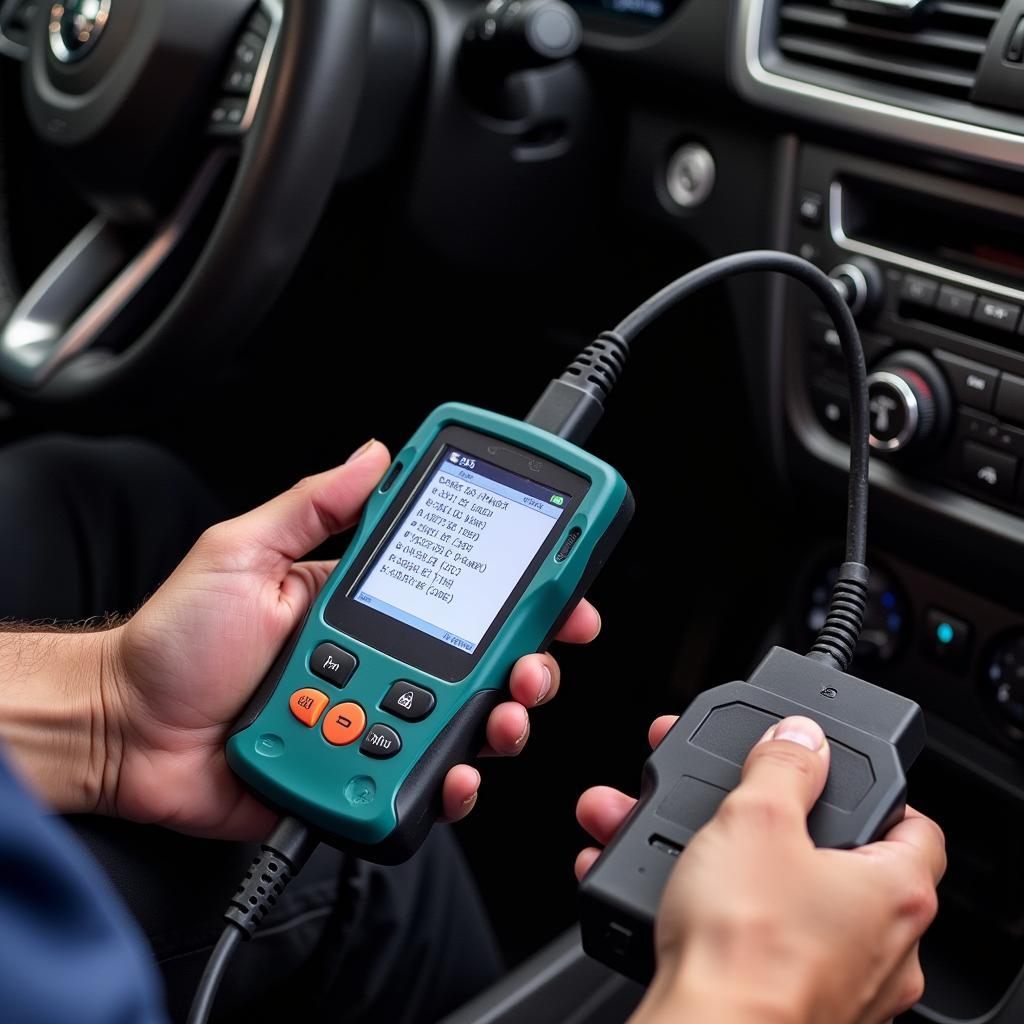 Using a Diagnostic Scanner to Check DTCs in a Car Amplifier
Using a Diagnostic Scanner to Check DTCs in a Car Amplifier
Advanced Diagnostic Techniques for Car Amplifiers
For more complex amplifier issues, advanced diagnostic techniques may be necessary. These techniques often involve using specialized equipment and a deeper understanding of amplifier circuitry.
- Signal Injection: This technique involves injecting a known audio signal into the amplifier circuit and tracing the signal path to identify the source of the problem.
- Component Testing: This involves testing individual components of the amplifier, such as transistors and capacitors, to identify faulty components. For diagnostics related to agricultural machinery, our ls tractor diagnostic tools page might be of interest.
Conclusion
Diagnosing car amplifier problems can seem daunting, but with the right car amp diagnostics tools and knowledge, it can be a straightforward process. By understanding the common problems, diagnostic procedures, and choosing the right tools, you can effectively troubleshoot and resolve amplifier issues, ensuring a high-quality audio experience in your vehicle. Don’t hesitate to reach out to ScanToolUS at +1 (641) 206-8880 or visit our office at 1615 S Laramie Ave, Cicero, IL 60804, USA for assistance and further support with your car amp diagnostic needs.
“Remember, a systematic approach to diagnostics is key,” advises Sarah Chen, a seasoned car audio technician. “Start with the basics and gradually move to more advanced techniques.” For insights into network diagnostics, explore our network diagnostic tool guide.

